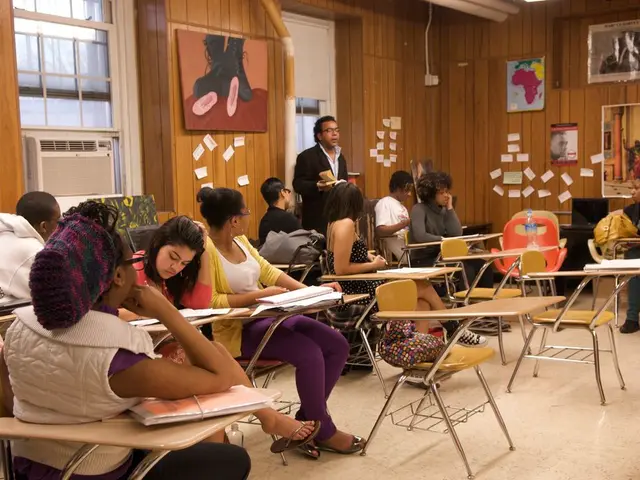South Korea aims for a future driven by AI, yet educational institutions face challenges in readying the next generation destined to steer this tech-centric path
In the rapidly evolving world of artificial intelligence (AI), ensuring that the next generation is well-equipped to navigate this digital landscape is of paramount importance. South Korea, a country aiming to be a world leader in AI, is making strides to improve AI literacy among its citizens, from preschoolers to the workforce.
However, the journey is not without challenges. The lack of qualified teachers is identified as the biggest obstacle in preparing the next generation for AI education. Many schools assign AI lessons to teachers from other subjects or rotate one computer teacher across as many as 10 schools. This situation, despite years of official promises to boost numbers, remains largely unchanged, with only 11 more teachers added in 2022 compared to the previous year.
The current information studies curriculum was revised in 2022, before the release of ChatGPT later that year. Today's textbooks cover concepts like data analysis and regression models, but they do not match students' interests or the technologies shaping their lives. The confusion over what "AI education" should entail continues, with some emphasizing coding, while others argue for data literacy, generative AI skills, or ethics.
In an effort to address these issues, the South Korean government is preparing a nationwide AI literacy programme. High school students may not take any computer studies classes, as it is an elective, but from 2025, coding will become a mandatory subject in middle schools, and from 2026, in elementary schools. The teachers to be trained for this programme will likely be selected educators from schools across the country, specially prepared to understand and teach AI concepts.
The launch of AI tools that can write code has raised questions about the relevance of teaching programming syntax alone. Professor Kim Hyun-chul of Korea University suggests that teacher training must integrate AI ethics and literacy, not just coding. The South Korean finance ministry plans to fund this programme by raising the education tax rate on financial and insurance firms from 0.5% to 1%, which is projected to generate KRW1.3 trillion (US$943 million) annually.
Compared to international education data, South Korea devotes fewer hours to computer studies: Britain devotes 374 hours, Japan 405 hours, and Beijing 212 hours. Middle school students receive 2% of their lessons in computer studies, totaling 68 hours over three years, while in elementary school, computer studies account for only 0.58% of total instruction time, with 34 hours across six years.
As the world becomes increasingly reliant on AI, it is essential that South Korea, and other countries, invest in comprehensive AI education programmes to ensure that their citizens are not left behind. The South Korean government's efforts to improve AI literacy are a step in the right direction, but much work remains to be done.
Read also:
- Top-Notch Weed Killers for Fences in 2025: Efficient Boundary Management Solutions for a Clean Fence Line
- United Kingdom should refrain from hastily deciding on hydrogen home heating, according to Scotland's appeal.
- Guide to Choosing Spain's Leading Animation Company
- Britain faces potential transformation into an AI "user nation" rather than an AI "producer," according to Hoberman's warning, with Nvidia and Microsoft dedicating billions to the field.








